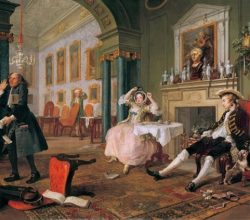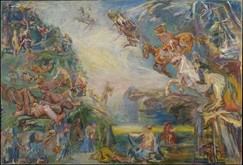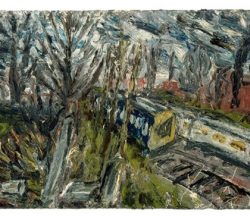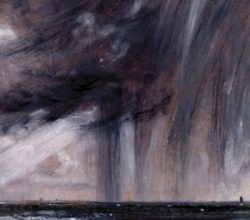
Hogarth and Europe, Tate Britain, review: a show in paroxysms of embarrassment about its own subject
Alastair Sooke | The Telegraph | 1st November 2021
This show intended – pre-Brexit – to position Hogarth as a European. That view has now been soft-pedalled, though the point of the show seems unchanged – he was influenced by Continental social realist artists. By any measure, his satirical paintings of modern life packed a punch. Sadly, the “asinine” wokeness of the show’s wall labels gets up many noses. Was not Hogarth’s greatness that he held up a mirror to his times? Why mount “a sustained attack on the artist [you are] celebrating?”



